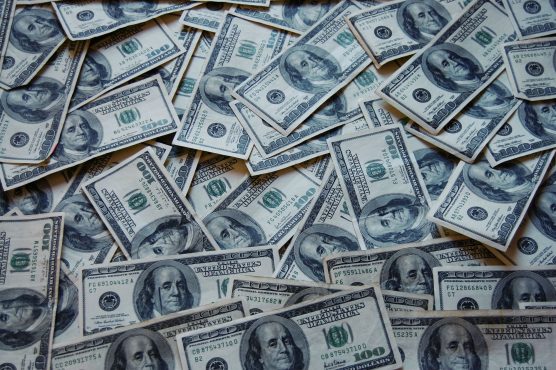By Nathan Solis
LOS ANGELES – California cities should be allowed to create and use their own public banking system according to lawmakers who introduced a bill Monday they say will pave the way for a financial system that is more transparent about how money is spent by local governments.
The development of a public banking system would be an antidote to a financial system that triggered the financial crisis of 2008 through predatory lending, according to the bill’s authors Assemblyman Miguel Santiago, D-Los Angeles, and Assemblyman David Chiu, D-San Francisco.
“Private corporations are not meant to do the business of public good, which is why we need a public bank that can determine how to use all the money saved on fees for the public good,” said Santiago outside Los Angeles City Hall on Monday. “We can invest in affordable housing, student loans and figure out the ways to get people off the streets.”
Through Assembly Bill 857, California would establish a charter allowing local governments to form their own local or regional public banks with a two-pronged purpose: banking related to infrastructure and wholesale lending, and lending to local institutions that are not already being serviced by other banks.
The public banking system would not compete with existing retail services that already have loans with credit unions or other banks.
Organizer Trinity Tran with the grassroots organization Public Bank LA, said the bill would allow citizens to invest in their own communities through a means of democratizing the current banking system.
“California is the fifth largest economy in the world and it’s time for us to take our money back,” said Tran, also a founding member of the California Public Banking Alliance. “The answer for Wall Street exploitation is here.”
Los Angeles City Councilman Herb Wesson pointed to the success of one of the country’s sole public banking system in North Dakota, and how it weathered the financial crisis of 2008.
“There is one bank for the past 17 years that has finished in the black. Don’t you want to know what they did? How they did it? Don’t we just want to explore this more to find out why they succeeded and others failed?” asked Wesson.
The second public banking system with access to the Federal Reserve is the Territorial Bank of American Samoa. The proposed public bank in California would follow a similar model.
The bill’s authors did not address whether the public banking system would take in cash from the state’s legal cannabis industry, pointing out this was still a matter for the federal government. But they noted their vision will see banks that work for the people and the public good rather than for investors.
Americans paid an astounding $34.3 billion in overdraft fees in 2017, up from $33.3 billion in 2016 and the most since the Great Recession, according to the research firm Moebs Services.
Like this:
Like Loading...
Related





 Tweet This
Tweet This Facebook
Facebook Digg This
Digg This Bookmark
Bookmark Stumble
Stumble RSS
RSS
























REAL NAMES ONLY: All posters must use their real individual or business name. This applies equally to Twitter account holders who use a nickname.
No Comments